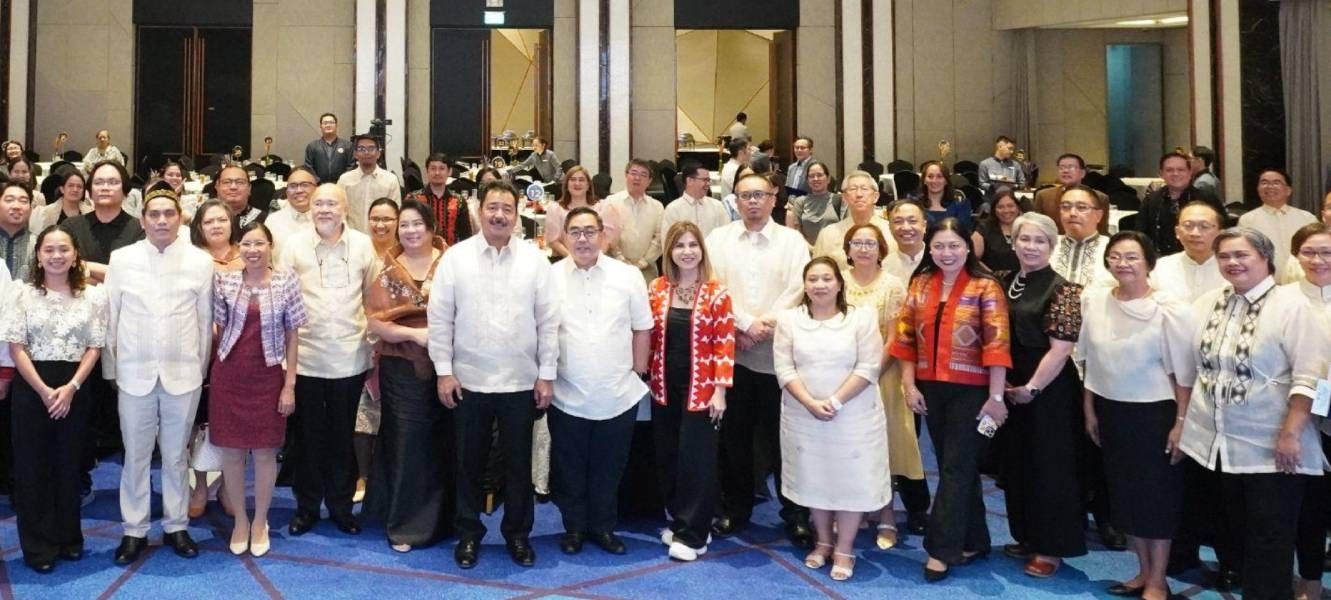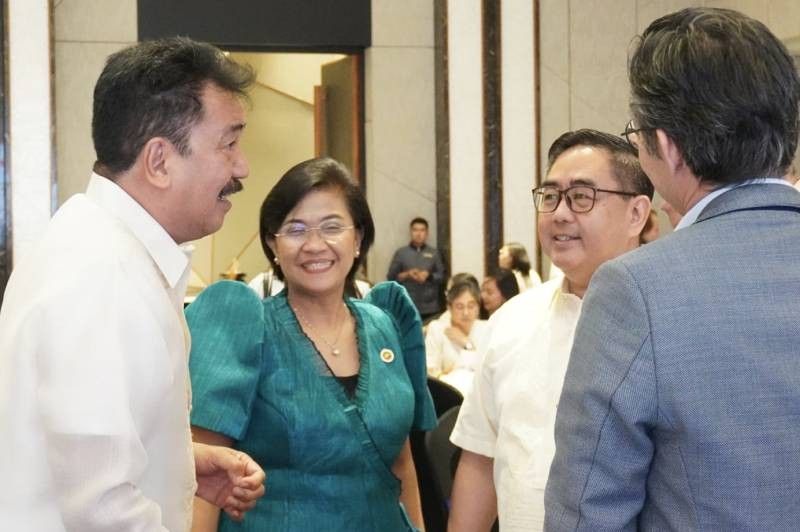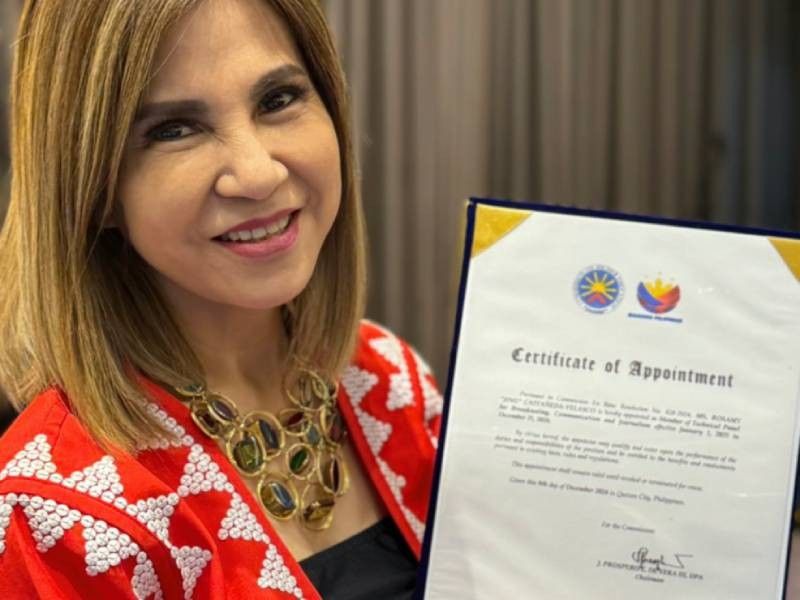CHED takes its chance on wider HEI perspectives

In an era defined by rapid technological advancements, shifting societal dynamics, and the evolving demands of the global workforce, the importance of continuously refining higher education cannot be overstated.
Every few years, the Commission on Higher Education (CHED) initiates a process to update the higher education curriculum. This is a crucial endeavor to ensure that Filipino students remain globally competitive and are prepared to face modern challenges. This commitment, I believe, is a profound recognition of education as the backbone of national development.
It’s also here that yours truly had the honor of being appointed as a member of the Technical Panel for Broadcasting, Communication, and Journalism (TPBCJ) – one of CHED’s 72 Technical Panels tasked with shaping the future of higher education in the Philippines.
Together with my esteemed colleagues from academia, the private sector, and government, we are entrusted with the responsibility of developing roadmaps for disciplinary programs, revising policies, standards, and guidelines (PSGs), and aligning educational outcomes with national and global standards. This is both a privilege and a challenge – one that I am eager to embrace.
A dynamic curriculum for a dynamic world
Higher education serves as the bridge between academic theory and practical application. As the workplace evolves – with new tools, technologies, and models reshaping our industries – our curriculum must keep pace.
CHED Chairman Prospero “Popoy” De Vera’s remarks resonate deeply, calling the oath-taking of my fellow Technical Panel members “a breakthrough.” “Three sectors collaborating in, number one, defining the supply and demand for that particular disciple, number two in determining how global events, how technological changes are going to affect the education of students, and in determining what kind of manpower our universities should produce," he added.

It is heartening to work alongside luminaries such as Dr. Elizabeth Enriquez, Mr. Norman Timothy Agatep, Mr. Herman Bazbaño, Dr. Beverly Lorraine Ho, Dr. Cheryll Ruth Soriano, and Dr. Dante M. Velasco.
As a communications student at Ateneo years ago, I would have been thrilled to learn from professionals like my fellow panel members. Today, I am humbled to work alongside them in shaping the future of broadcasting, communication, and journalism education.
It warmed my heart as well to see many familiar faces, and people whom I can confidently call my friends. Many of them we have also interviewed across our segments either in TV, radio, or our online shows, which I think speaks to their expertise and consistent passion for their respective fields --- UP Professor Dr. Wendell Capili, forensic pathologist Dr. Raquel Fortun, Ateneo research director Dr. Tippy Sumpaico, and Saint Benilde Dean, School of New Media Arts Dr. Sharon Arriola.
Preparing Filipino students for modern challenges
The disruptions brought about by AI and social media demand that we equip students with not only technical skills but also critical thinking, ethical grounding, and adaptability.
And looking back to my early days at ABC News in New York City, I am struck by how much the media industry has transformed. What was once a field dominated by print and broadcast media has expanded to include digital storytelling, data journalism, and multimedia production. The skills required to thrive in journalism and communication today are vastly different from those needed a decade ago.
It is our responsibility as members of the TPBCJ to ensure that students are not only prepared to enter this evolving landscape but also to excel and innovate within it.
As someone who has navigated the realms of journalism, production, and communications across traditional and digital media, I aim to bring to the table the perspectives of a veteran practitioner, a tradigital media pioneer, and an education advocate. I can only hope that this unique vantage point allows me to serve as a bridge for students to find their way through the gap between theoretical frameworks, and industry realities.

CHED Commissioner Dr. Shirley Agrupis’ vision for “more responsive, inclusive, and accountable panels” aligns with my own aspirations for higher education. Our goal is to establish programs that meet the demands of a highly employable and skilled Filipino workforce while addressing national priorities and local needs. This holistic approach ensures that education serves as both a personal and collective investment in the future.
A shared vision for excellence
The Technical Panels’ mandate extends beyond curriculum development. We are also tasked with evaluating the compliance of higher education institutions (HEIs) with minimum requirements, assessing applications for Centers of Excellence and Centers of Development, and recommending revisions to existing programs.
These responsibilities require a commitment to openness, collaboration, and good governance – values that Chairman Popoy eloquently highlighted, affirming that “together, we have to make sure that Philippine higher education soars to new heights.”
As I embark on this four-year tenure, I am filled with gratitude and determination. This is an opportunity to distill my experiences as a journalist, producer, and advocate into meaningful contributions to higher education. It is also a chance to learn from my colleagues, whose expertise and passion inspire me to strive for excellence.
To my fellow Technical Panel members and the broader academic community, let us dedicate ourselves to this mission with the conviction that through education, we transform lives and build a brighter tomorrow. As Chairman Popoy aptly put it, “let us ensure that we build a community of practice that prides itself in openness, collaboration and subscribes to good citizenship and governance.”
----
Follow my social media accounts JingCastaneda: Instagram, Facebook, YouTube, Tiktok, and Twitter. Please share your stories or suggest topics at [email protected].
- Latest
























